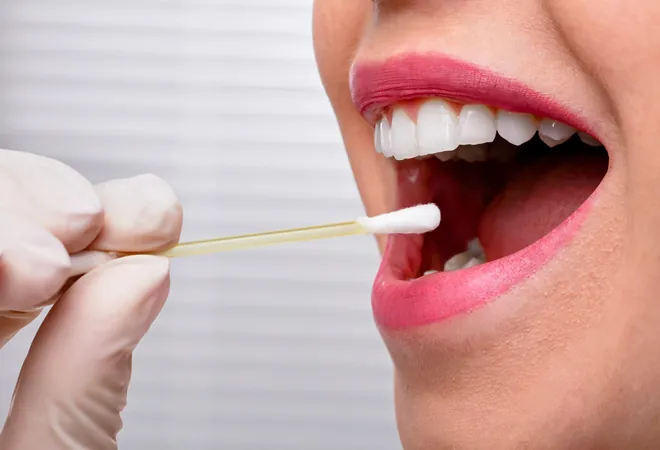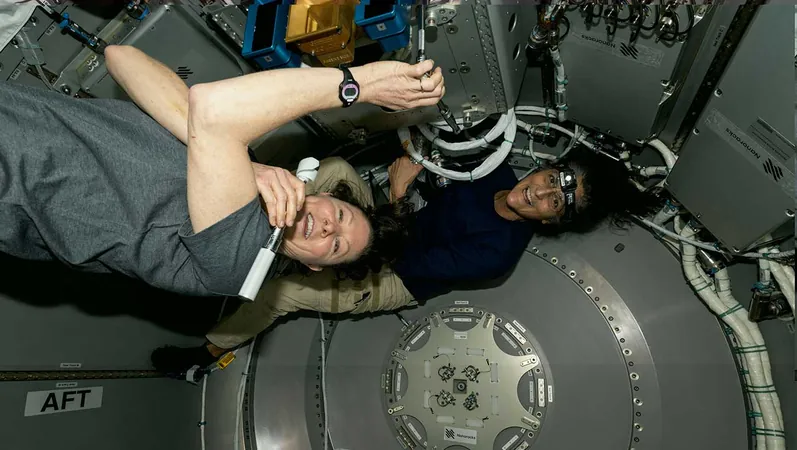
Predict Your Lifespan with Cheek Cells: The Revolutionary Epigenetic Aging Clock!
2024-10-06
Understanding Biological Aging
The phenomenon of biological aging can often diverge significantly from chronological aging. While some individuals may benefit from genetic predispositions that promote longevity, others may succumb to accelerated aging due to unhealthy habits, such as poor diet, lack of sleep, smoking, or excessive alcohol use. These variations write their own stories in our genomes, manifesting as epigenetic modifications—changes that impact gene expression without altering the DNA sequence itself.
Enter CheekAge: A Game Changer in Mortality Prediction
Researchers have developed innovative tools known as "epigenetic aging clocks," calibrated to assess biological age through an individual’s DNA methylation patterns. Traditionally, these assessments relied on blood samples, which can be invasive and uncomfortable. However, a breakthrough from a team in the United States has introduced CheekAge, a method utilizing cheek cell samples that are far less stressful to obtain.
In a landmark study, it was revealed that CheekAge reliably predicts mortality risk, demonstrating a significant correlation with various measures of health and lifestyle. Dr. Maxim Shokhirev, head of computational biology at Tally Health in New York, emphasized the importance of specific methylation sites that link certain genes to mortality, indicating deeper biological processes at play.
Groundbreaking Findings
The study involved data from over 1,500 individuals born between 1921 and 1936, part of a longitudinal study by the University of Edinburgh known as the Lothian Birth Cohorts (LBC). Participants' mortality data was gathered through the Scottish National Health Service Central Register, and the results were strikingly promising.
CheekAge outperformed traditional blood-based epigenetic clocks, showing a pronounced association with mortality risk. Notably, a one-standard deviation increase in CheekAge corresponded to a staggering 21% increase in overall mortality risk for older adults, indicating its potential as a crucial health marker.
Gene Insights: More Than Just Numbers
The research team also excavated further into which specific gene regions correlated with increased mortality risk. They identified noteworthy genes such as PDZRN4—which may serve as a tumor suppressor—and ALPK2, reportedly linked to cancer and cardiovascular health. The implications of these findings suggest new avenues for research on lifespan and age-related conditions.
Dr. Adiv Johnson from the research team pointed out the excitement around discovering whether the identified genes indeed impact longevity in animal models. The ability to track aging through a non-invasive cheek swab could potentially revolutionize health care by making aging research accessible and efficient.
Biological Age: The New Health Metric
Biological age, signifying the health status of cells and tissues, may offer a truer reflection of an individual's wellness than merely counting years. People who lead healthier lifestyles may find their biological age is considerably younger than their chronological age, whereas those with chronic health issues may experience the opposite.
Understanding your biological age is key to tailoring lifestyle choices and health management strategies, signaling when to adopt preventive measures against age-related diseases.
Final Thoughts
The discovery of the CheekAge method marks a monumental step forward in our understanding of aging and mortality. As researchers suggest, simple genetic material sourced from cheek cells could unveil a treasure trove of insights into our aging processes.
The full findings are documented in the esteemed journal, *Frontiers in Aging*, offering an exciting glimpse into the future of personal health assessment through epigenetics. Could a simple swab soon become your go-to check-up for longevity? The future of aging research is looking bright!
Stay tuned for further developments in this field that could change how we perceive and approach aging.




 Brasil (PT)
Brasil (PT)
 Canada (EN)
Canada (EN)
 Chile (ES)
Chile (ES)
 España (ES)
España (ES)
 France (FR)
France (FR)
 Hong Kong (EN)
Hong Kong (EN)
 Italia (IT)
Italia (IT)
 日本 (JA)
日本 (JA)
 Magyarország (HU)
Magyarország (HU)
 Norge (NO)
Norge (NO)
 Polska (PL)
Polska (PL)
 Schweiz (DE)
Schweiz (DE)
 Singapore (EN)
Singapore (EN)
 Sverige (SV)
Sverige (SV)
 Suomi (FI)
Suomi (FI)
 Türkiye (TR)
Türkiye (TR)